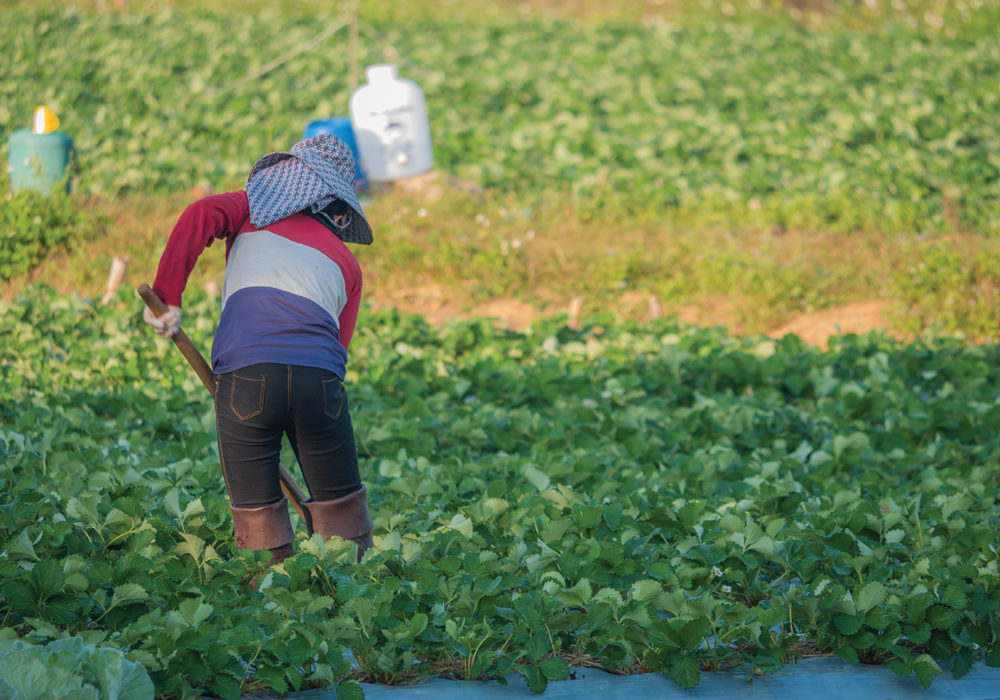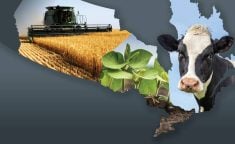Nearly two weeks after securing permission for temporary foreign workers to enter the country, agriculture groups were still hammering out the details of how they’d get here.
“We’re trying to make sure that everyone is as safe as possible,” said Beth Connery, labour chair of the Canadian Horticultural Council.
On March 16, Prime Minister Justin Trudeau announced that foreign nationals from all countries except the U.S. were barred from entering Canada in response to the evolving threat of COVID-19.
Read Also

Tie vote derails canola tariff compensation resolution at MCGA
Manitoba Canola Growers Association members were split on whether to push Ottawa for compensation for losses due to Chinese tariffs.
This set many agriculture organizations scrambling, as thousands of workers are needed for the upcoming growing season.
March 20, the federal government announced temporary foreign workers would be exempt from the ban and loosened certain restrictions on how long some workers could stay. It was understood that workers would be expected to quarantine for 14 days and observe safety protocols.
The federal government released those protocols on March 27. As expected, they include a 14-day quarantine, during which the workers must be paid. For seasonal agricultural worker program (SAWP) employees, employers must fulfil their contracts. For other workers, they must be paid for a minimum of 30 hours per week at the rate specified on the Labour Market Impact Assessment.
Workers will not be allowed to work, unless deemed as providing an essential service by the chief public health officer. Employers must monitor the workers’ health, preferably by call, text or email and not in person, and isolate workers who become sick.
Connery, who runs a large vegetable farm with her family, has been making plans for her workers and working to develop provincial best practices based on the federal requirements.
On her farm, they’ll deliver anything the isolated workers need to their houses. The houses have internet so they can communicate with home and order things online. They also keep in touch with the workers via messaging app WhatsApp.
After 14 days, Connery said their workers will stay on the farm so they’re not exposed to the coronavirus by contact with Canadians.
“So everyone is self-contained and can work in safety,” she said.
They’re also developing protocols for if someone gets sick, Connery said. This included speaking with local health-care providers about what to do if one of the international workers gets sick.
Logistics continues to be a hurdle as many airlines have shut down international flights. Connery said as far as she knows, Air Canada will continue flying to Mexico in May and may be able to bring workers (many come from Mexico).
There’s also been talk of chartering flights. According to an April 1 report in the Globe and Mail, a chartered flight brought workers from Jamaica to Ontario that week and more were scheduled.
Those workers will need to arrive soon. For Connery, she’ll need workers in four to five weeks when asparagus comes up.
“We would like to get them in as quickly as we possibly can so that there isn’t food out in the field that we can’t harvest,” she said. “It’s a squeeze.”
In Ontario, farms are already behind, Connery said.
In the United States, the food industry relies on over 200,000 temporary foreign workers — many in California — according to a March 31 article by economist Shub Debgupta in the New York Times. For about 90 per cent of these workers, the visas needed are issued at American consulates at Mexico, writes Debgupta, and these consulates are shut down.
“Last Thursday, the State Department made the visa process easier,” writes Debgupta. “But prolonged delays in temporary help could further limit farm production in California.”
Connery said American producers are short on labour and some are cutting back on acreage.
“It’s going to be a very interesting year,” she said.
















